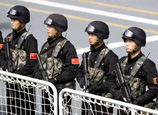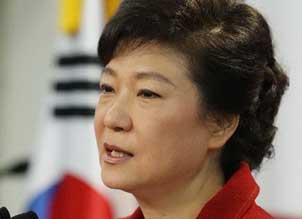
The civil affairs authorities in Ningbo estimated that by 2015 the city will have 200,000 residents aged 80 or above, and two-thirds of the seniors would be in empty-nest households, with their children living far away.
The center also set up a communication club in late November, which enables seniors to dial a hotline and chat with volunteers for free whenever they feel overwhelmed by loneliness.
To date, more than 500 seniors and 60 volunteers have joined the club.
The city government also works hard to provide more community-based medical services for the old, especially for those living in economic plight.
Optometrist Chen Kan takes turns with seven colleagues giving free checkups and scans to poor senior residents in the city's Jiangdong district.
Chen comes to work two days a week at the Neighborhood Center of Jiangdong District, and his voluntary team usually helps 30 seniors a week.
"It saves time and some money for seniors who have eye diseases to receive free examinations in communities," he said.
The center functions as an incubator for the development of non-governmental organizations, providing working services including training, technical support, financial support and advocacy to facilitate the development of NGOs.
Xu Yiping, deputy director of the bureau of civil affairs in Ningbo, said the new era requires government to cooperate with the private sector and NGOs to deliver public services.
"The government is not capable of doing everything, and even if the government tries to do so, the public may not give credit to the government," he said.
"We are learning to engage the public and different organizations in public affairs," he added.
 |














 Beijing-Zhengzhou high-speed railway to start service on Dec. 26
Beijing-Zhengzhou high-speed railway to start service on Dec. 26


![]()
